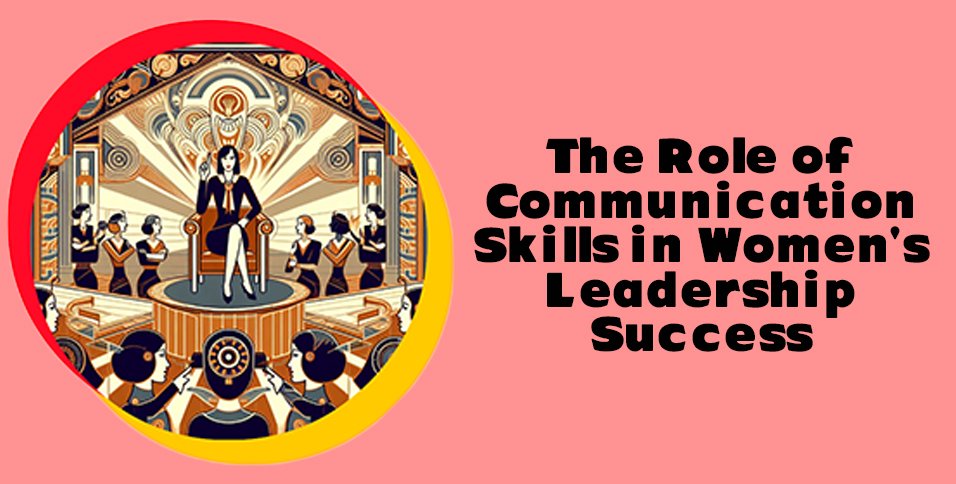Introduction
Effective communication is a cornerstone of successful leadership, enabling leaders to inspire, influence, and engage with their teams, stakeholders, and audiences effectively. For women leaders, honing exceptional communication skills is particularly crucial, as it can empower them to break through barriers, build trust, and assert their authority in traditionally male-dominated environments. In this blog post, we will delve into the importance of communication skills in women’s leadership success and explore practical strategies for enhancing communication effectiveness to drive organizational growth and foster inclusive and collaborative workplaces.
In today’s fast-paced and interconnected business landscape, the ability to communicate effectively is essential for conveying ideas, building relationships, and driving organizational success. Poor communication, on the other hand, can lead to misunderstandings, conflicts, and decreased productivity, hindering leadership effectiveness and organizational performance.
Mastering effective communication skills offers numerous benefits for women leaders, including:
- Building Trust and Credibility: Establishing trust, credibility, and rapport with team members, colleagues, and stakeholders through clear, open, and honest communication.
- Driving Collaboration and Engagement: Fostering collaboration, engagement, and teamwork by effectively communicating goals, expectations, and feedback and encouraging open dialogue, participation, and contribution.
- Influencing and Persuading Others: Influencing, persuading, and inspiring others to embrace and support organizational initiatives, changes, and strategies by articulating compelling visions, ideas, and messages.
Active listening is a fundamental communication skill that involves fully concentrating, understanding, and responding to the speaker’s message. Women leaders can enhance their active listening skills by:
- Listening Attentively and Empathetically: Paying close attention to the speaker, demonstrating empathy and understanding, and asking clarifying questions to ensure comprehension and validation of the speaker’s perspective and feelings.
- Avoiding Interrupting and Jumping to Conclusions: Avoiding interrupting the speaker, making assumptions, or jumping to conclusions, and allowing the speaker to express their thoughts, ideas, and feelings fully and without interruption.
Clear and concise communication is essential for conveying ideas, information, and messages effectively and efficiently. Women leaders can improve their clarity and conciseness by:
- Organizing Thoughts and Ideas Effectively: Organizing thoughts, ideas, and information logically and coherently to facilitate understanding, retention, and engagement.
- Using Simple and Direct Language: Using simple, direct, and straightforward language and avoiding jargon, technical terms, or complex language that may confuse or alienate the audience.
Assertive communication involves expressing thoughts, ideas, and feelings confidently, respectfully, and directly, while also being receptive to the perspectives and feelings of others. Women leaders can enhance their assertive communication skills by:
- Expressing Thoughts and Ideas Clearly and Confidently: Expressing thoughts, ideas, and opinions clearly, confidently, and assertively, and standing firm on principles, values, and boundaries without being aggressive, confrontational, or passive.
- Receiving Feedback and Criticism Constructively: Receiving feedback and criticism constructively, demonstrating openness, humility, and willingness to learn, and responding with grace, respect, and professionalism.
Jacinda Ardern, the Prime Minister of New Zealand, is a remarkable example of a woman leader who excels in communication and leadership. Ardern’s empathetic, authentic, and transparent communication style has earned her widespread admiration, trust, and support, enabling her to effectively lead and unite her country through various challenges and crises, including the COVID-19 pandemic.
Christine Lagarde, the President of the European Central Bank, is another inspiring example of a woman leader who demonstrates exceptional communication and leadership skills. Lagarde’s articulate, composed, and persuasive communication style has contributed to her success in driving policy, leading organizational change, and fostering collaboration and unity among European countries and stakeholders.
Conclusion
Communication skills are a critical component of women’s leadership success, enabling women leaders to build trust, drive collaboration, influence and inspire others, and achieve organizational goals and objectives effectively. By mastering active listening, clear and concise communication, and assertive communication, women leaders can enhance their communication effectiveness, leadership impact, and organizational success.
As we continue to recognize and celebrate the unique strengths, capabilities, and contributions of women leaders, let us also commit to fostering a supportive, inclusive, and empowering environment that values and nurtures communication skills, leadership development, and women’s advancement. Together, we can empower women leaders to excel, thrive, and make a lasting impact in their careers, organizations, and communities.






